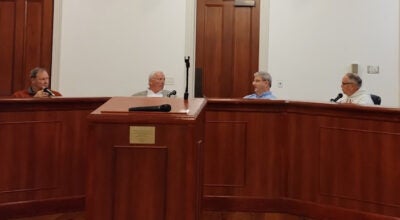Anderson’s bond set at $350,000
Published 9:37 pm Friday, January 14, 2011
A Marengo County judge set bond at more than a quarter of a million dollars Thursday for a Demopolis man accused of rape.
Curt Ladean Anderson, 48, of Demopolis, sits in the Marengo County Jail with a $350,000 bond answering to charges of Rape First and Assault Second.
Anderson was arrested in Mobile Monday by the Gulf Coast Regional Task Force
and transferred to the Marengo County Jail Tuesday.
Anderson, 48, had been sought by the Demopolis Police Department for nearly
a month for allegedly raping and assaulting a 35-year-old female at 604 E.
Pettus Street Dec. 16.
The alleged incident took place while Anderson was already out on bond.
“He had pending a Rape First Degree and an unlawful distribution of a controlled substance,” District Attorney Greg Griggers said of Anderson’s other legal issues. “This last one that he U.S. Marshals helped us pick him up on, we’re hoping will help us get his bond revoked from the first set of charges.”
Griggers said he requested a bond of $300,000 for Anderson’s latest charge, finding a pleasant surprise when the final number surpassed his request by $50,000.
The next move for Griggers’ office will be requesting revocation of bond on Anderson’s earlier charges.
“We have to plead some pretty specific details in a case like that,” Griggers said. “My plan is to try to get the judge revoke his bond in those first two cases whenever we have court on (Jan. 25).”
Should the judge opt to revoke Anderson’s bond from his earlier charges the move will provide Griggers’ office with more leeway in preparing the case for trial.
A revocation coupled with a $350,000 bond on the current charges will make it exceedingly difficult for Anderson to make it outside the walls of a holding facility before his trial.
“If (the judge) revokes his bond and I don’t have the concern that (Anderson) is out on the streets, I don’t feel the need to push (the trial date forward),” Griggers said. Under ideal circumstances, a case of this nature can take anywhere from a year to 14 months to make it to trial according to Griggers.
However, Griggers has a number of decisions to make prior to beginning a trial.
“I guess it will be a decision on which case we want to try first,” Griggers said. “We don’t necessarily have to try them in the order they happened.”





